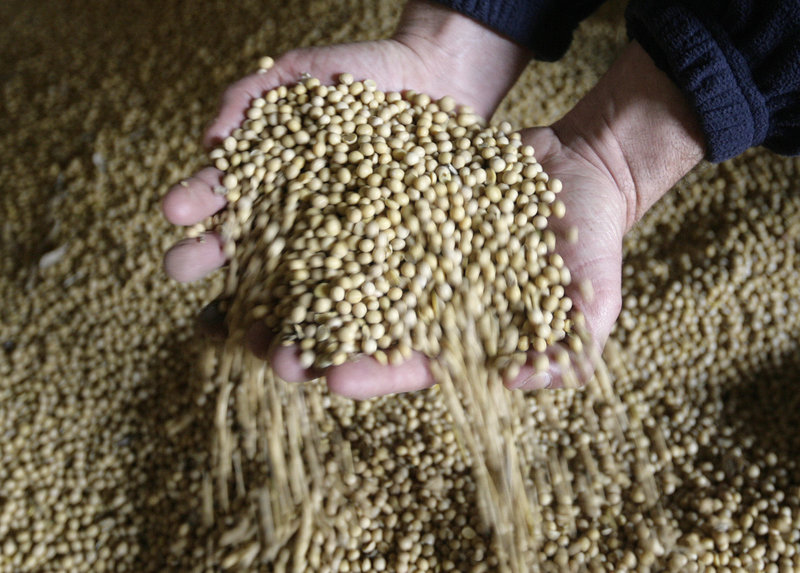WASHINGTON — Farmer Vernon Bowman thought he’d found a legal way to get proprietary soybeans at cheap, generic prices. But the Supreme Court disagreed, ruling last week that he was guilty of patent infringement.
Monsanto makes “Roundup Ready” soybeans, which are genetically engineered to be impervious to the Roundup line of herbicides. Because Monsanto controls an estimated 90 percent of the soybean market, most of the soybeans on the market have the “Roundup Ready” trait. So Bowman went to a grain elevator and bought commodity soybeans that would normally be used for eating, not planting. He planted the seeds and sprayed the crop with Roundup, killing off plants not descended from Monsanto’s beans. He then replanted and harvested the seeds for eight generations, getting the Roundup Ready feature without the Roundup Ready premium.
Bowman argued that this was legal because he wasn’t the one creating the seeds. The seeds were responsible for sprouting and generating new soybeans, he said, and Monsanto couldn’t blame him for using seeds the way Mother Nature intended.
“We think that blame-the-bean defense tough to credit,” wrote Justice Elena Kagan in the unanimous decision. “Bowman was not a passive observer of his soybeans’ multiplication.” Planting soybean plants and letting them grow is how you make new soybeans. A patent that didn’t restrict the creation of new seeds by planting old ones would be toothless.
It’s a common-sense ruling, but it raises an interesting problem: How can a farmer who isn’t interested in using Monsanto’s soybeans avoid infringing? Bowman was trying to get Monsanto beans on the cheap, but other farmers might want generic soybeans. Monsanto’s beans are so ubiquitous that even organic farmers who deliberately avoid planting Monsanto’s beans can wind up growing beans with Monsanto’s DNA due to cross-pollination.
So is a farmer who accidentally buys and plants beans with Roundup Ready genes guilty of patent infringement? A literal reading of the decision suggests he probably would be.
But the court left itself some wiggle room, saying that its opinion was limited to “the situation before us, rather than every one involving a self-replicating product.”
Under other circumstances, the court might reach a different conclusion. Monsanto says it has no intention of going after farmers who use its beans by accident, so organic farmers don’t need to worry in the short term. But the ruling creates the theoretical possibility of biotech “patent trolls” who sue farmers for accidentally planting infringing seeds.
Send questions/comments to the editors.



Success. Please wait for the page to reload. If the page does not reload within 5 seconds, please refresh the page.
Enter your email and password to access comments.
Hi, to comment on stories you must . This profile is in addition to your subscription and website login.
Already have a commenting profile? .
Invalid username/password.
Please check your email to confirm and complete your registration.
Only subscribers are eligible to post comments. Please subscribe or login first for digital access. Here’s why.
Use the form below to reset your password. When you've submitted your account email, we will send an email with a reset code.